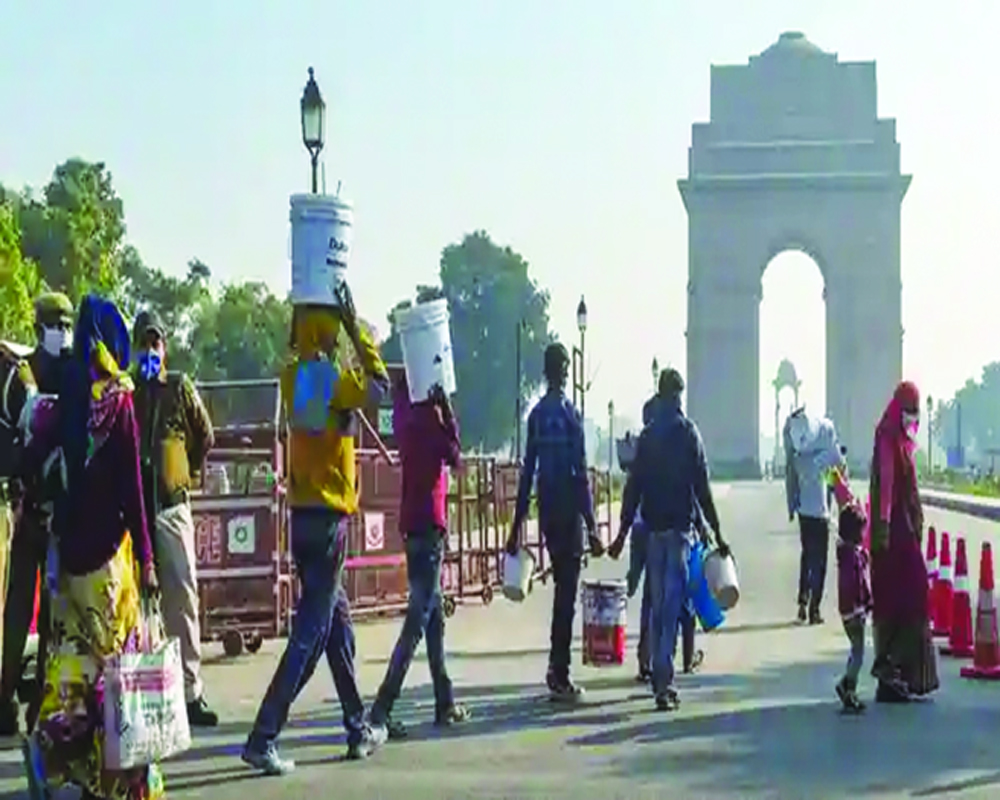A combination of democracy and socialism had been tried by Pandit Jawaharlal Nehru. It did not end inequality but induced tax evasion
The World Inequality Report, 2022, has been published. French political economist Thomas Piketty and his team have reportedly brought forth a goldmine of data in what they claim are several insights into this egregious problem. Christians are especially concerned with inequality and its corollary, namely poverty. The deprivation of poverty is indeed one of the worst curses on humanity and perhaps on animals, although a lot of it goes unnoticed. Or probably animals move away or migrate to greener, richer areas if they can. To move away is not always possible for humans who have to cross national boundaries.
Speaking as a believing Hindu, inequality is caused by the person’s, or people’s karma, whether in this life or an earlier one. Foreigners, especially from the West, while visiting India are horrified by the sight of poor localities and the shanties therein. If one goes to speak to the poor to ask them why they are so poor, the reply is likely to be ‘what to do, Sir, (or Madam), my karams (karma) must have been bad, now I cannot change them.’ In Christendom, the belief is that God created men equal but society has rendered them unequal. Bernard Shaw, the distinguished playwright, called the poor casualties of civilisation. He thus blamed society for the inequality, which in turn causes poverty.
Karl Marx was the product of his witnessing inequality resulting in acute poverty, which became more and more visible as industrialisation advanced. Poverty was not so visible in villages because it was scattered, although inequality was sharper in the rural areas. The difference between the lord and the serf in the standard of living was generally very acute. But ideologues like Marx had no facility to travel in the villages to study the economic life in the rural areas. Which partly explains why communism has not been considerate to poor peasants; its regimes dispossessed them and collectivised their minimal portions of land. The communist leaderships have been obsessed by the proletariat and Marx’s Communist Manifesto called for the workers of the world to unite; there was no mention of the peasants in this all-important call.
In any case, communism killed itself rather than prosperity, poverty or inequality. A clear conclusion one can draw is that the ideology failed and its practitioners met their demise primarily because the problem of inequality was insoluble. This is an indication that the theory of karma stands vindicated. Look at the large number of Christians, rather Jesuits, who have spent their lifetimes trying to teach in schools and cure the poor in hospitals but have not been able to crack the problem of poverty. Instead, they have succeeded only in converting millions of poor to the worship of Jesus Christ. They have not been able to solve any problem other than their utilisation of economic activity to create socio-political tensions.
If economic theory, political activity and socio-religious service has failed to knock the bottom out of inequality, what can? There is a family of two brothers who inherited vast fortunes from their father. One brother has grown richer while the other is comprehensively bankrupt in a matter of a decade and a half. How does one explain such a phenomenon except with the help of karma? A learned Englishman has recently suggested democracy as a cure for inequality. As a last resort, he prescribed the removal of social barriers erected by caste, religion, ethnicity and gender, which should help reduce inequality. Many societies in Europe had none of these barriers except gender, and yet the problem has persisted. A combination of democracy and socialism had been tried by Jawaharlal Nehru. It did not touch inequality; but it induced tax evasion and the illegal remittance of money out of the country to banks in countries that are tax havens.
The Scandinavian countries as well as Switzerland have gotten as near as abolishing poverty as presumably possible; but that is not equality. Those who wrote the Constitution of India did not come to grips with this subject. They wrote Liberty, Equality and Fraternity at its beginning. The country was divided but that has not brought about fraternity. There is tension, violence and killing in all the three parts. There is about as much liberty as anywhere in the world, although differences of opinions persist between the Opposition and the ruling party. India is a free country if a citizen is not a criminal, whether socially or as a result of his/her ideology.
However, liberty does include the freedom to perform as much good karma as one can. There is no lid on karma as there was an attempt on income in Nehru’s India. If there cannot be a lid on karma, how can there be equality? Because not everyone can excel and be equal in the performance of good karma. If that be so, our last postulate, and that of our Constitution makers, collapses. No hope of equality! The reality of karma allows genuine liberty to the living being, but with attendant responsibility of the wisdom of choice. However, there is no scope for an artificially enforced equality, whose outcomes have always been very debilitating.
(The writer is a well-known columnist, an author and a former member of the Rajya Sabha. The views expressed are personal.)



























